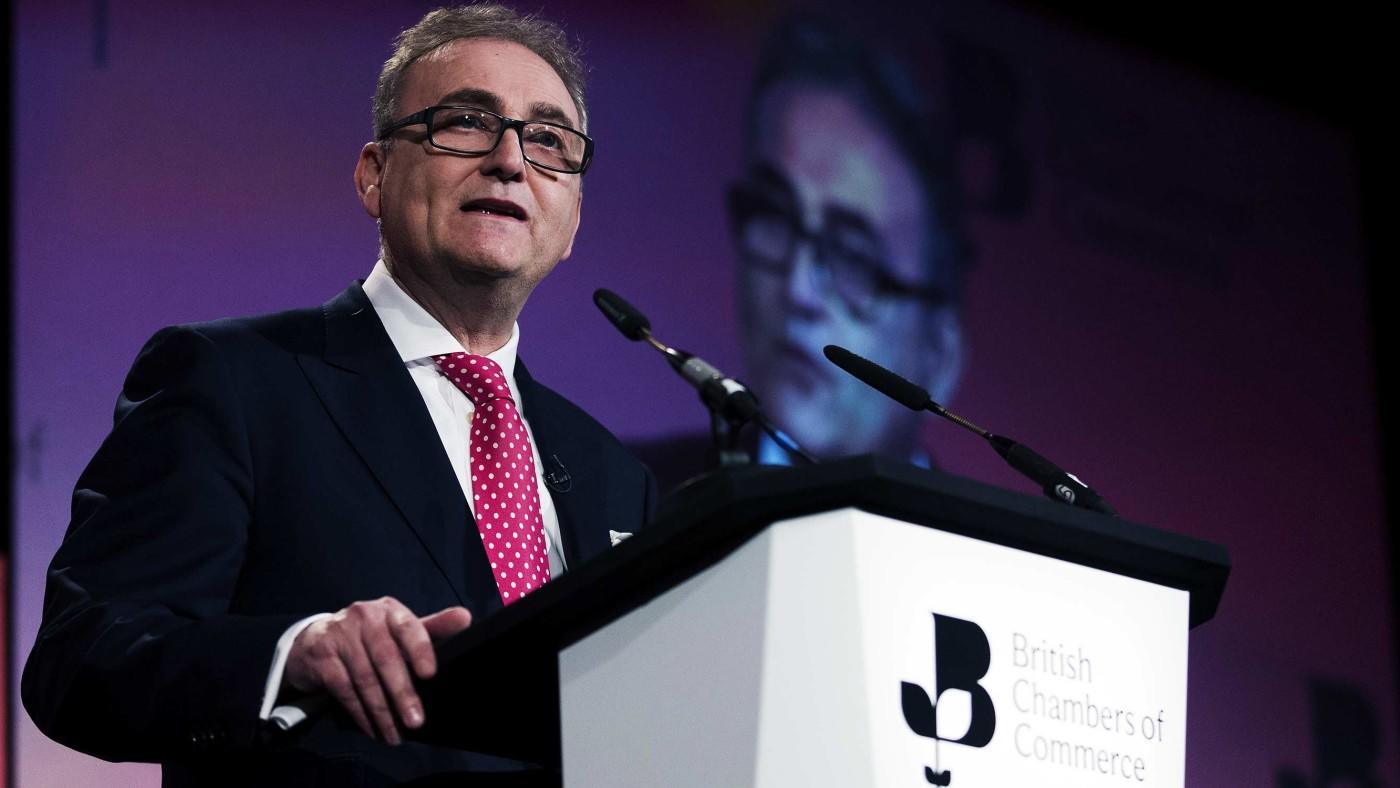If you thought that there was no longer such a thing as the British Establishment, think again. The Remain side is campaigning chiefly through letters signed by grandees: FTSE chairmen, directors of mega-charities and NGOs, former ambassadors and the like. The sorts of people, as the saying used to go, who “live in Who’s Who and die in The Times.”
John Longworth, who was suspended over the weekend as Director of the British Chambers of Commerce, is not such a man. I used to see him in Brussels from time to time, where he never quite seemed to fit in. Among the sharp-suited lobbyists, with their practised Euro-patter, his tendency to speak clear, intelligible English marked him out. Polite and soft-spoken, he stuck to the BCC’s agreed (and strikingly moderate) position, namely that Britain should stay in the EU only if it could secure meaningful repatriations of power.
No one, not even the loudest Euro-cheerleader, has tried to claim that David Cameron’s deal results in the return of powers from Brussels to Westminster. That aim – the centrepiece of the PM’s renegotiation when he launched it back in 2013 – was dropped early in the talks. Accordingly, Mr Longworth followed through the logic of the BCC’s position. Since the EU had shown that it would never reform, he said, he was recommending that British businesses seek a brighter future outside. He none the less stressed that he was speaking in a personal capacity, because there was a diversity of opinion among BCC members.
Within hours, he was out. Did Downing Street have a hand in his removal? I don’t know and, frankly, I don’t much care. Far more interesting is why Mr Longworth’s advocacy of the interests of small and medium-sized firms brought him into conflict with the Establishment – that self-congratulatory coalition of consultants and contractors and CBI mandarins and peers and assorted hoary-headed Euro-worthies.
The divergence of interest between large and small businesses is critical to the Brexit debate. Here are two key figures to bear in mind. First, twice as many people work for SMEs as for big companies. Second, only 6 per cent of all UK firms do any business with the EU – but 100 per cent of them must apply 100 per cent of EU regulations.
The corporate giants have always been more pro-EU than their smaller rivals, whether old family firms or nimble start-ups. A major survey in August by Perspective Research Services found that, by two-to-one, SMEs regarded the EU as more of a cost than a benefit; and more than 70 cent of such businesses wanted to take back control of employment law, health and safety and trade negotiations.
To understand why the megabanks and multinationals don’t want such powers returned to the UK, you need only spend a week or two where I work. Brussels is a lobbyists’ paradise. The table below shows how much the mega-corporations spent on lobbying in the first half of last year, the latest period for which figures are available.
Amount spent on lobbying in the first six months of 2015
| 1 Microsoft Corporation | 4,500,000 |
| 2 Shell Companies | 4,500,000 |
| 3 ExxonMobil Petroleum & Chemical | 4,500,000 |
| 4 Deutsche Bank AG | 3,962,000 |
| 5 Dow Europe GmbH | 3,750,000 |
| 6 Google | 3,500,000 |
| 7 General Electric Company (GE) | 3,250,000 |
| 8 Siemens AG | 3,230,169 |
| 9 Huawei Technologies | 3,000,000 |
| 10 BP | 2,500,000 |
Source: Transparency International
There’s a reason they’re prepared to shell out so much. The 36 FTSE-100 companies that signed a pro-EU letter in The Times last month spent €21.3 million lobbying the EU; they got back €120.9 million in grants from Brussels. Hard to argue with a 600 per cent return on investment.
The money, though, is the least of it. Far more damaging is the way big firms lobby to get rules that suit them and hurt their competitors. I was surprised, when I was a new MEP, that corporate giants were forever demanding more regulation. It took me a while to understand why. They could easily assimilate the compliance costs, and were raising barriers to entry so as to secure a more monopolistic position.
Plainly this is bad for BCC members who, for the most part, can’t afford Brussels lobbyists, and are on the receiving end of the regulation. But it’s also bad for the EU economy in general, serving to stifle innovation and protect obsolescent conglomerates. It helps explain why, when the rest of the world is growing, the eurozone is no larger now than it was in 2007. If you want to be on the side of the innovator, the entrepreneur, the start-up, you should vote to leave.


